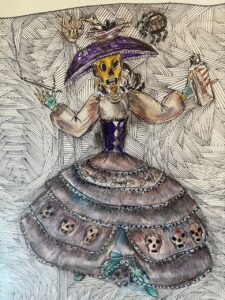New Mexico State Poetry Society Keynote Address 2022
New Mexico State Poetry Society Keynote Address
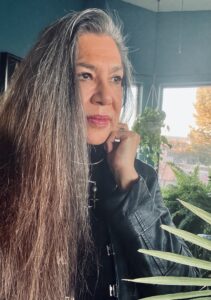
Ana Castillo, 2022
April 16, 2022
Thank you for joining me today, everyone. My gratitude to all who’ve been part of organizing this convention in the beautiful State of New Mexico but especially to Zachary Kluckman for personally extending the invitation to me to join you. It’s an exciting privilege to to address you mid National Poetry Month and to help celebrate with others the beloved artform of penning, reading in private, and declaiming publicly verses—the kind that faithfully rhyme, those composed of full sentences but for constant break lines are short essays, memoir or fiction.
Some current poetry is loaded with metaphors and mystical evocations and yet, others clipped like the wispy hairs of a toddler on their first barber visit—snip, snip, snip—voila! A poem. From rap to concrete poems and from Edna St. Vincent Millay to Sherman Alexie sonnets, from Juan Luis Guerra’s early bachata lyrics influenced by García-Márquez to Leonard Cohen’s lyrical portraits of longing and social observations; the poems that tell stories and the ones that reject narrative. From nineteenth century limericks considered obscene, whimsical or fueled with jabs at politicians and parties and the nursery rhymes of our childhood no matter where we grew up. Whatever your poetry predilection, forté, medicine for soul healing, elixir for eliciting amorous emotion and bursting passion, or social justice outrage… Thank you for having me and welcome.
We’re well into the 21st century and this event proves that the need and desire for the genre remain with the human spirit. As with the visual arts from early cave drawings to collective efforts of neighborhood murals and the paintings hung in the Louvre rendered by the singular brush of an immortalized maestro, our dedication to poetry whether oral or written remains firm and present, real and valued and invaluable. We don’t have to ask if it is needed, its perseverance proves it. We need not question its purpose when every society has had and continues to make a place for it.
I celebrate here and today with you virtually, our new normal to conduct business and social affairs, because the first awaited world pandemic wisely demands our remaining at home. This life and affirmation to include poetry in all our acts and desires, even while struggling to get a poem right causes consternation and self-doubt, even while in the 21st century the planet is more populated than ever and also has more living poets who clamor like the hungry in soup lines to distinguish ourselves for the sake of a bowl of attention, rewards, competitions and accolades. In other words, to survive and thrive as poets, we may still find a reason to rejoice.
It’s all good, as they say. On such an autumn night in 2015, when I wasn’t clamoring for attention but on the contrary, reclusive in my homestead in the Chihuahuan desert, thunder resounded. I remotely observed the news of the transition of Native activist and poet John Trudell. That night I did what all poets, seers and soothsayers, warriors and activists ask of others, to heed their warnings. And I wrote that night the following poem, included now in my new collection, My Book of the Dead.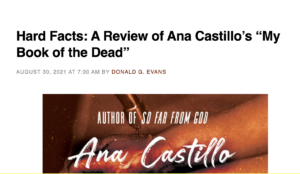
No matter what society, what era, poetry comes along. Even when the society and sometimes especially so, is in transition for better or for worse, verses record with acute accuracy and nuance each step. The poet doesn’t so much predict the future like a mystic as much as hark warnings because their ear is to the ground. Their eyes are everywhere. Their nose sniffs the air. Change is on its way. Poets of the state and underground poets, like CIA agents and activists of the resistance—dead serious all and often incognito take up their assignments, whether at midnight while the rest of the world slumbers or at a busy airport waiting for their connection, to bear witness to the times. Let’s read such poems not like a current 2 ½ minute article on Google but like tomorrow’s headlines, or on a neon billboard on the highway entering a new town.
The theme of this convention has been, in fact, transition, a word laden with possibilities for interpretation. Depending on your immediate point of reference it may sound technical, a dry directive, a necessary action. “With the pandemic I had to transition to a new job that permitted me to work at home. It paid less but I got to take naps and stay in my bathrobe all day.” “If you want this essay to work, this story, this poem you’ll need to find a transition to connect these two ideas—right here, yes.” “The last time I saw my father was in the hospital, he was transitioning and I said my sorrowful goodbyes.”
It’s a good word, I think, transition, as if there were any bad words. Curse words are not bad words; they get to the point. To be effective, however, like with most words, it’s best to be selective of the context and not redundant or hell, they risk losing effect, power. Transition isn’t a word we think loaded with the kind of power that makes people respond with a wince, step back, a hand over the mouth. Oh, snap! She said, transition! How dare you suggest I transition, sir! But like an organic being moving with horsepower–550 pounds one foot in one second–where ever you plant the word transition, it implies something worth taking note. Change is happening. Unlike examples just mentioned, the word isn’t always an exit sign, a connector, a space you are forced to occupy to get somewhere else. Transition itself means action.
For example, we may gender transition–a process that comes from much thought and requires determination, courage, listening to a tiny hammer tapping into every aspect of your being. Your body and spirit are alerted. Radical results are imminent! It requires following the conviction of what you know to be a fact, like adhering to an exact science merged with what you believe to be a fundamental truth of existence as we do with the religion and/or philosophy we observe to guide us though life.
We think of ourselves as static beings when every second of everyday the microscopic cells that comprise our bodies are busy-busy, then die after generating different ones to take their place. We talk about how we once looked and yet by nightfall you are not the same person you saw in the mirror this morning when brushing your teeth. When you are a child and then into your teens your body transitions like a high-speed film. Grownups around you are always amazed at how you’ve changed. Imakes us happy.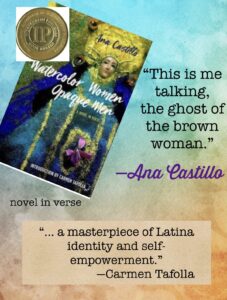
Later, when we’re older we consider it a compliment to be told a decade has passed and we haven’t changed at all, not one bit. And indeed, some of us try to make time stop. We dye our hair, get injections, lypo and diet. We take young lovers, hang out at new bars and adapt to latest styles and trends. But we have changed, outside and inside. Your organs—heart, liver, and kidneys know it. The organ that is your brain knows it, too. By mid-life we become disconcerted over not just a paunch or receding hairline but the fact that words and facts we had at the tip of the tongue are slipping away. Like a drat moth, it was right here, you son of a gun until I went to smack you and you flitted away. There it is, no, there it is again, then gone. How will I get my brilliant writing done? Writing sometimes gets done by assuring we keep an arsenal of vocabulary secure. One such summer, it was 2013 I think, I’d just gotten off a stint of reading everything available by Roberto Bolaño. He’d been a disciple of poetry but at the end, made his name as a prose writer. Another such fellow, Charles Bukowski whose poetry I’d read in the 80s, came to mind and I set to read all his fiction. I wrote this poem that summer.
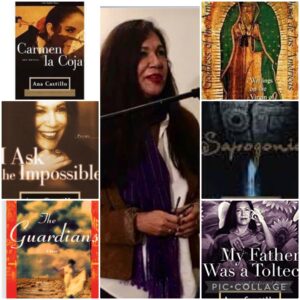
There’ll be more transitions, the energy you had to stay up all night to work dissipates. When you’re young and see a middle aged person or elder going through these transitions we might quietly ask ourselves—Why doesn’t he/she/they just give up writing? They’ve said all they had to say. It’s our time. Move aside, granny. But that’s more often than not impossible for most human beings, the giving up to our inevitable mortality, much less to continue living with a sense of irrelevance and uselessness. Writing and in this case, poetry is all you’ve known, you signed up for and will take to the bitter end.
Maybe for some, they find relief to sit out their final years with daytime TV and watering the front yard, a few rounds of golf with old pals or taking the long wished for cruise with the kids and grandkids.
But such pedestrian pursuits do not suffice for the rarest of species amongst the artists– the poet. And the beauty of it lies in accessibility. The writing of a poem, ability to read and listen to another poet lies right there in the art form, the inherent selectiveness of language. This goal makes poetry obtainable for both the poet and reader or listener. But don’t be fooled. I’m not just cutting to the chase by writing a poem verses a novel, an opera or executing an oil painting of sizeable proportions. It’s the accessibility but also the economy of words. You’ve gone out and brought back a few but the finest gems for our pleasure and consumption.
In 2018 I was invited to the inauguration of the new president of my alma mater in Chicago. I was asked to read a poem of my choice. Given that my new poems were celebratory, I wrote one for the occasion.
On this occasion, I remember the words of a long departed dear poet friend, Ronnie Burk who seems to have become better known since his death. One afternoon at the kitchen table of a house built in the 1700s where I was sharing a residence with the poet Joseph Brodsky, when Ronnie came to visit—who in his lifetime had no publisher, no agent, no laurels or awards for his writing, told me in a quiet voice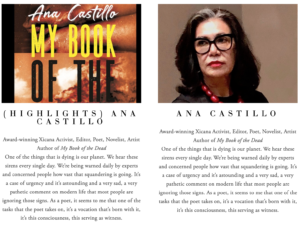 that in the end it wouldn’t matter if he’d be remembered as a major poet or a minor one. It was honor enough to be considered a poet and be part of the world of poetry, to enjoy the friendship of other poets and to live, sleep, drink, cry and dance with their verses. Today I echo that sentiment. It is also fortuitous, as I see human spirit, that we do so on a weekend that celebrates the regeneration of the planet after a long winter with Rites of Spring, Easter and Passover. To all of you, blessings to your homes in the seasons to follow, that you may all have places to rest your heads, food enough to eat and store for the winter and a storage of words to pull out in the dark long nights of winter and weave blankets of poetry to warm the world during the long nights of winter.
that in the end it wouldn’t matter if he’d be remembered as a major poet or a minor one. It was honor enough to be considered a poet and be part of the world of poetry, to enjoy the friendship of other poets and to live, sleep, drink, cry and dance with their verses. Today I echo that sentiment. It is also fortuitous, as I see human spirit, that we do so on a weekend that celebrates the regeneration of the planet after a long winter with Rites of Spring, Easter and Passover. To all of you, blessings to your homes in the seasons to follow, that you may all have places to rest your heads, food enough to eat and store for the winter and a storage of words to pull out in the dark long nights of winter and weave blankets of poetry to warm the world during the long nights of winter.
